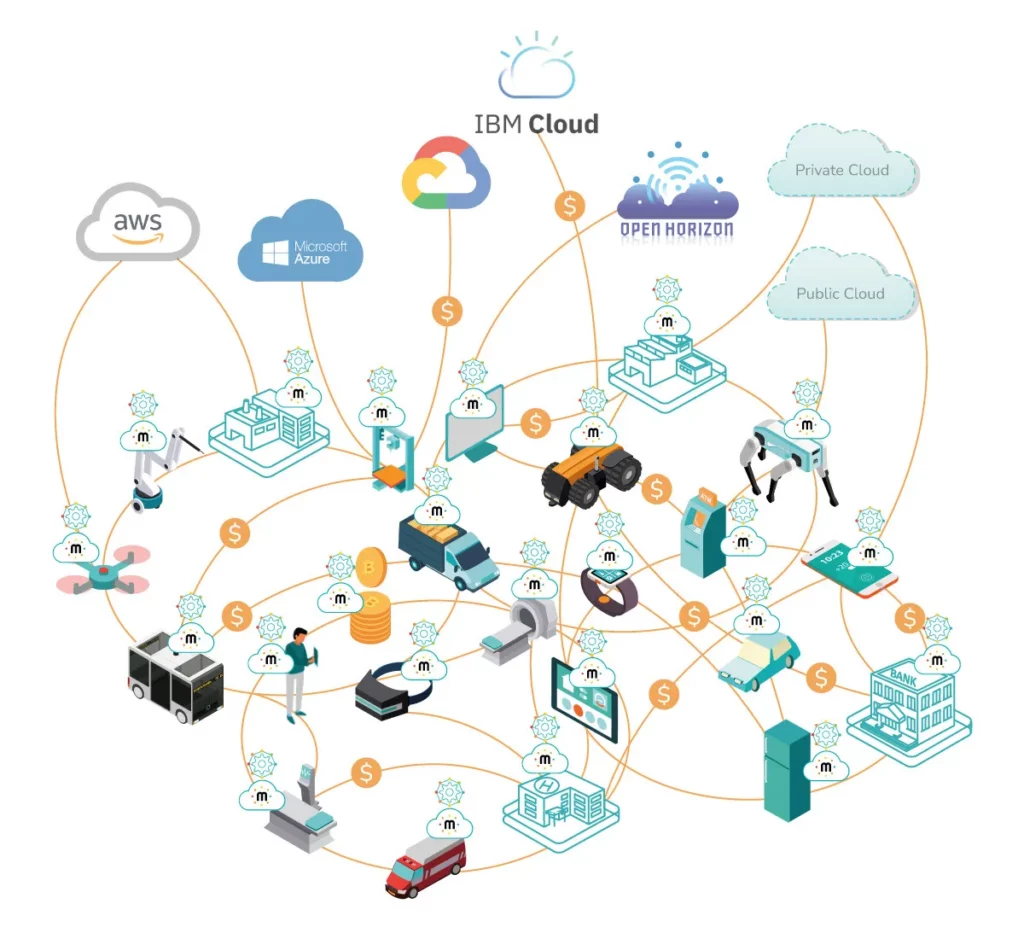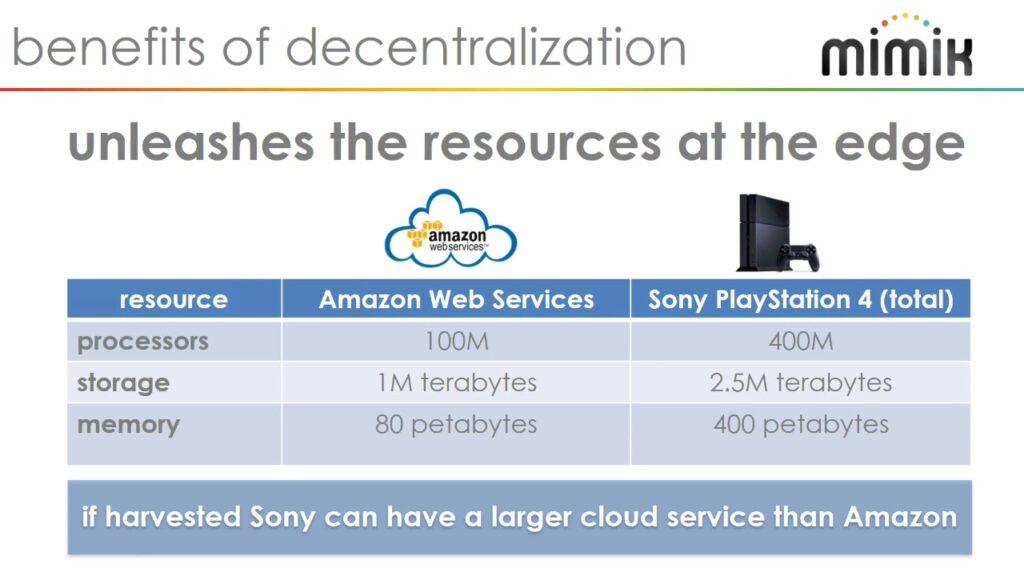In today’s dynamic digital landscape, the convergence of edge computing and distributed ledger technology unveils a transformative potential that extends far beyond mere technical buzzwords. Beyond the limelight of these innovations, lies the creation of a monumental knowledge-as-a-service economy that could revolutionize the existing multi-trillion-dollar data broker system — an ecosystem riddled with opacity, guesswork, data scraping, and unauthorized information exploitation.
Hybrid Edge Cloud (HEC) pioneered by mimik is a pivotal player, empowering smart devices to act as cloud servers to locally run workflows, seamlessly share data, knowledge, and computing resources, collaborate via APIs, and transfer microservices among devices, fostering an interconnected digital ecosystem.

The mimik HEC platform enabling any smart device to act as a cloud server.
Complementing this, distributed ledger technology, particularly within the realm of private chains and smart contracts tailored for a smaller set of stakeholders, takes charge of managing financial transactions in a secure, transparent, traceable, immutable, and efficient way. It’s crucial to distinguish this approach from the widely publicized crypto hype. Unlike the public blockchains associated with cryptocurrencies, private chains operate within a confined network, ensuring computational efficiency and scalability. These private chains, governed by smart contracts, enforce transparent and predefined rules agreed upon by a smaller set of stakeholders. This computational efficiency is a cornerstone, allowing for streamlined transactions and reducing the computational cost and environmental footprint associated with large-scale public blockchain networks.
Imagine a world where mimik’s HEC serves as an open arena, allowing services to fluidly run on smart devices and effortlessly discover, collaborate, and exchange knowledge autonomously. Envision a smart thermostat communicating with your wearable to read your body temperature and then dynamically optimize temperature and energy consumption based on the current context. Through this framework, services can be hosted on devices and can collaboratively navigate tasks creating an environment far removed from centralized pre-defined control and guesswork.
In this digital milieu, microservices play a pivotal role, akin to specialized functions executed by smart devices — language translation, image processing, or data analysis, for instance. Traditionally, confined to centralized servers in data centers, mimik’s platform revolutionizes this landscape, facilitating the seamless traversal of microservices across devices. For instance, your smartphone can momentarily borrow an image processing microservice from your tablet, enhancing its capabilities instantly. This decentralized sharing of microservices endows devices with dynamic prowess, optimizing their functions collectively.
While mimik platform enables choreography of this seamless flow of microservices, private chains and tailored smart contracts within the network ensure secure and efficient transactions with audit trails and logs. Consider an autonomous drone in need of an AI model for fault detection in an industrial site or a port facility. mimik’s platform seamlessly facilitates the drone’s access to this model from another smart device, gateway, or a cloud server through a secure exchange within the private chain. The implementation of smart contracts ensures the integrity and transparency of this exchange, fostering a fair and efficient transaction environment.
Yet, the transformative power of this collaborative ecosystem goes beyond mere technical advancements. It envisions a shift — a monumental departure from the prevailing data broker system — to an automated, traceable knowledge-as-a-service economy. Here, stakeholders are rewarded for contributing accurate, valuable information and collaborating seamlessly. This paradigm disrupts the underhanded practices of the data broker economy, replacing opacity and guesswork with transparency and collaboration, fostering an ecosystem where all stakeholders are fairly rewarded for their contributions.
In essence, this convergence of HEC and distributed ledger not only elevates the efficiency, security, and autonomy of device collaboration but lays the foundation for a revolutionary knowledge-as-a-service economy — a beacon of fairness, transparency, and collaboration across diverse industries.



